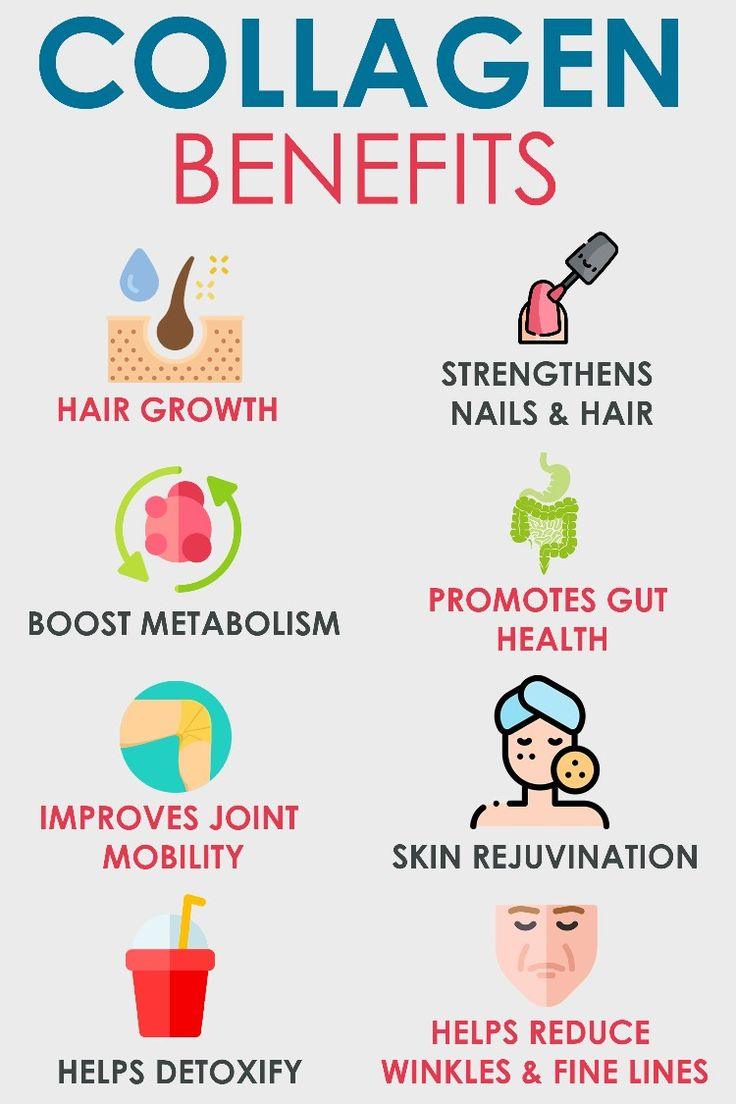“Getting to Know Collagen: The Vital Protein for Healthy Skin, Joints, and Overall Well-Being”
Collagen is an essential protein that plays a key role in keeping our body’s tissues strong and healthy. It’s found in various parts of our body, including the skin, bones, tendons, and cartilage. As the most abundant protein in mammals, collagen gives our skin its strength and elasticity, which is vital for maintaining a youthful appearance. However, as we age, our bodies produce less collagen, leading to common signs of aging like wrinkles and sagging skin.
Collagen is also important for joint health, as it helps cushion and support our joints, which can reduce the risk of injury and discomfort. To support collagen production, you can include certain foods in your diet, such as bone broth, fish, and a variety of fruits and vegetables. Additionally, there are supplements available that can help boost collagen levels in your body, promoting overall health and well-being.
Collagen is an essential protein that significantly contributes to the health and appearance of our skin, hair, nails, and joints. Here’s a closer look at some of the remarkable beauty and health benefits of collagen:
Beauty Benefits:
1. Skin Elasticity and Hydration:
Collagen is essential protein for maintaining skin elasticity and hydration, which helps minimize the appearance of fine lines and wrinkles. As we age, our bodies produce less collagen, leading to sagging skin.
2. Improved Skin Texture:
Regularly incorporating collagen into your routine can enhance your skin’s texture, making it smoother and giving it a more youthful glow.
3. Nail Strength:
Collagen can fortify your nails, making them less brittle and promoting healthier growth.
4. Hair Health:
This protein supports the structure of your hair, potentially leading to healthier and shinier locks.
5. Wound Healing:
Collagen is vital in the skin’s healing process, aiding in the repair of wounds and helping to minimize scarring.
Health Benefits:
1. Joint Health:
As a key component of cartilage, collagen cushions our joints. Supplementing with collagen may alleviate joint pain and enhance mobility, especially for those with osteoarthritis.
2. Bone Strength:
Collagen plays a role in maintaining bone density and strength, which may help lower the risk of fractures and osteoporosis.
3. Muscle Mass:
Essential collagen protein supplementation can support muscle mass and strength, particularly when paired with resistance training.
4. Gut Health:
Collagen helps maintain the integrity of the gut lining, which can support digestive health and alleviate symptoms associated with leaky gut syndrome.
5. Heart Health:
Collagen may contribute to cardiovascular health by providing structure to arteries and supporting overall heart function.
Incorporating collagen into your diet, whether through supplements or collagen-rich foods, can provide a wide array of benefits for both your beauty and overall health.
Collagen are present in the form of:
Collagen can be incorporated into your routine in several enjoyable ways, tailored to your personal preferences and health goals. Here are some popular options:
1. Powder Form:
Collagen powder is a versatile choice that can easily blend into your favorite beverages, like smoothies, coffee, or tea. Its neutral taste and quick dissolving nature make it a hassle-free addition to your daily diet.
2. Capsules or Tablets:
If you prefer a no-fuss approach, collagen is also available in capsule or tablet form. This option allows for straightforward consumption without any preparation needed.
3. Liquid Collagen:
Some brands offer liquid collagen supplements that can be taken on their own or mixed into drinks. This form may be absorbed more rapidly by your body, providing potential benefits sooner.
4. Collagen-Infused Foods:
You can also find collagen in various foods, such as protein bars, snacks, and even bone broth. These tasty options can help you boost your collagen intake while enjoying your meals.
5. Topical Applications:
Collagen is included in many skincare products, like creams and serums. While there’s some debate about how effective topical collagen is, these products are designed to enhance skin hydration and elasticity.
6. Homemade Recipes:
For those who enjoy cooking, consider making your own collagen-rich dishes, such as soups or stews using bone broth, which is naturally high in collagen.
As you explore these options, remember to adhere to the recommended dosage on the product label and consult with a healthcare professional if you have any specific health concerns or dietary restrictions.

Side Effects Of Collagen
Collagen supplements are generally safe for most individuals, but it’s important to be aware of some potential side effects. Here are a few to consider:
1. Digestive Issues:
Some people might experience gastrointestinal discomfort, which can manifest as bloating, diarrhea, or constipation.
2. Allergic Reactions:
If you have allergies to specific sources of collagen, such as fish or eggs, you could experience allergic reactions. However, there symptoms may include hives, itching, difficulty breathing.
3. Unpleasant Taste:
A few collagen supplements may have a taste that some users find unappealing.
4. Hypercalcemia:
In rare instances, collagen supplements from certain sources, like marine collagen, could lead to elevated calcium levels in the blood.
5. Medication Interactions:
Collagen may interact with certain medications, so it’s wise to consult with a healthcare provider if you are on other treatments.
As with any supplement, it’s always a good idea to talk to a healthcare professional before starting collagen supplementation, especially if you have existing health conditions or are pregnant or breastfeeding. However, always give priority to your safety and health.
Organic Remedies For Collagen Production In Body
There are several organic remedies that can help support your body’s collagen production. Here are a few to consider:
1. Bone Broth:
This nourishing broth, made by simmering animal bones, is packed with collagen and amino acids that are great for your skin and joints. Bone Broth: This nourishing elixir is packed with collagen, derived from simmering animal bones and connective tissues. However, collage is extracted by slow cooking process and extracts not only collagen but also a wealth of essential nutrients, including minerals and amino acids. These elements work together to elevate your skin elasticity and support your joint health.
2. Vitamin C-rich Foods:
Incorporating foods like oranges, strawberries, kiwi, and bell peppers into your diet can really boost collagen production, as vitamin C plays a crucial role in collagen synthesis. . Vitamin C-Rich Foods: Incorporating foods high in vitamin C, such as oranges, strawberries, kiwi, and bell peppers, can significantly aid in collagen synthesis. It plays a crucial role as a co-factor in the collagen production process, however, helping to stabilize and link collagen molecules effectively.
-
Leafy Greens:
- Vegetables such as spinach and kale are fantastic choices. They contain chlorophyll, which may help enhance collagen levels in your skin.4. Nuts and Seeds:
- Snack on almonds and chia seeds:
- They are rich in zinc and copper, both of which are vital for collagen production.5. Berries:
- These little powerhouses are loaded with antioxidants that can help protect collagen from damage.6. Avocado:
- However, this delicious fruit is not only full of healthy fats but also vitamin E, which helps maintain skin elasticity and supports collagen health. ConclusionBy adding these foods to your meals, you may naturally promote collagen production in your body. Just remember, it’s always a good idea to consult with a healthcare professional before making any significant changes to your health routine.
You can add these remedies into your diet, you body’s collagen needs can full fill in a natural way.











